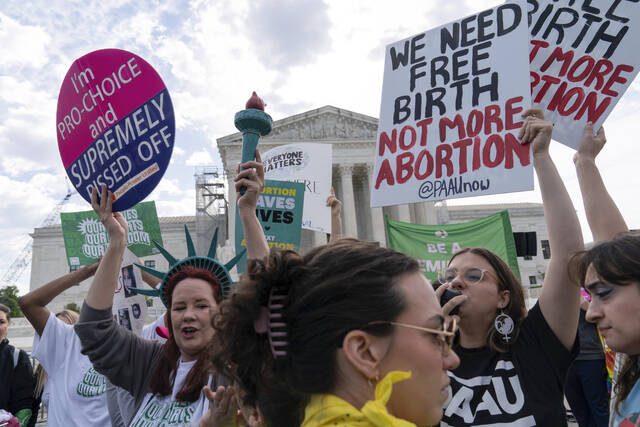WASHINGTON — Conservative justices on the Supreme Court on Wednesday seemed skeptical that state abortion bans enacted after Roe v. Wade was overturned violate federal health care law. However, some also questioned the impact on emergency care for pregnant patients.
This case is the first time the Supreme Court is considering the consequences of a state ban following the overturning of the nationwide right to abortion. It originates from Idaho, which is one of 14 states that now prohibit abortion at any stage of pregnancy with very limited exceptions.
The Supreme Court has already permitted the state ban to take effect, even in medical emergencies. It was unclear whether members of the conservative majority were influenced by the Biden administration’s argument that federal law supersedes the state law in rare emergency cases where a pregnant patient’s health is seriously at risk.
The closely watched case examines how willing the court is to create specific exceptions to state abortion bans. Their decision, expected by late June, will also impact a similar case in Texas and could have broad implications amid an increase in reports that pregnant women have been denied emergency room care since Roe was overturned.
The Biden administration argues that abortion care must be permitted in those cases under a law that demands hospitals accepting Medicare to provide emergency care regardless of patients’ ability to pay.
Justice Samuel Alito, who authored the decision to overturn Roe v. Wade, expressed doubt. “How can you impose restrictions on what Idaho can criminalize, simply because hospitals in Idaho have chosen to participate in Medicare?” Alito said.
Idaho argues that its ban does have exceptions for life-saving abortions and the administration wants to improperly broaden the circumstances under which hospitals are allowed to become “abortion enclaves.”
However, liberal justices presented examples of pregnant women experiencing severe bleeding or needing to undergo hysterectomies after being denied or delayed abortion care in states with bans.
“Within these rare cases, there’s a significant number where the woman’s life is not in peril, but she’s going to lose her reproductive organs. She’s going to lose the ability to have children in the future unless an abortion takes place,” said Justice Elena Kagan.
Meanwhile, Conservative Justice Amy Coney Barrett said she was “kind of shocked” that an attorney for Idaho seemed to hesitate when asked whether the state would allow abortions in such cases. Attorney Joshua N. Turner responded that doctors can use their “good faith” medical judgment under Idaho’s life-saving exception, but Barrett continued to press: “What if the prosecutor thinks differently?”
Turner admitted that a doctor could face a criminal case in that situation. Performing an abortion outside of limited exceptions in Idaho is a felony punishable by up to five years in prison.
Most Republican-controlled states have begun enforcing new bans or restrictions since Roe was overturned, and Turner said those laws all have narrower exceptions than the federal law.
He said that the issue will not stop at Idaho and will arise in many other states.



